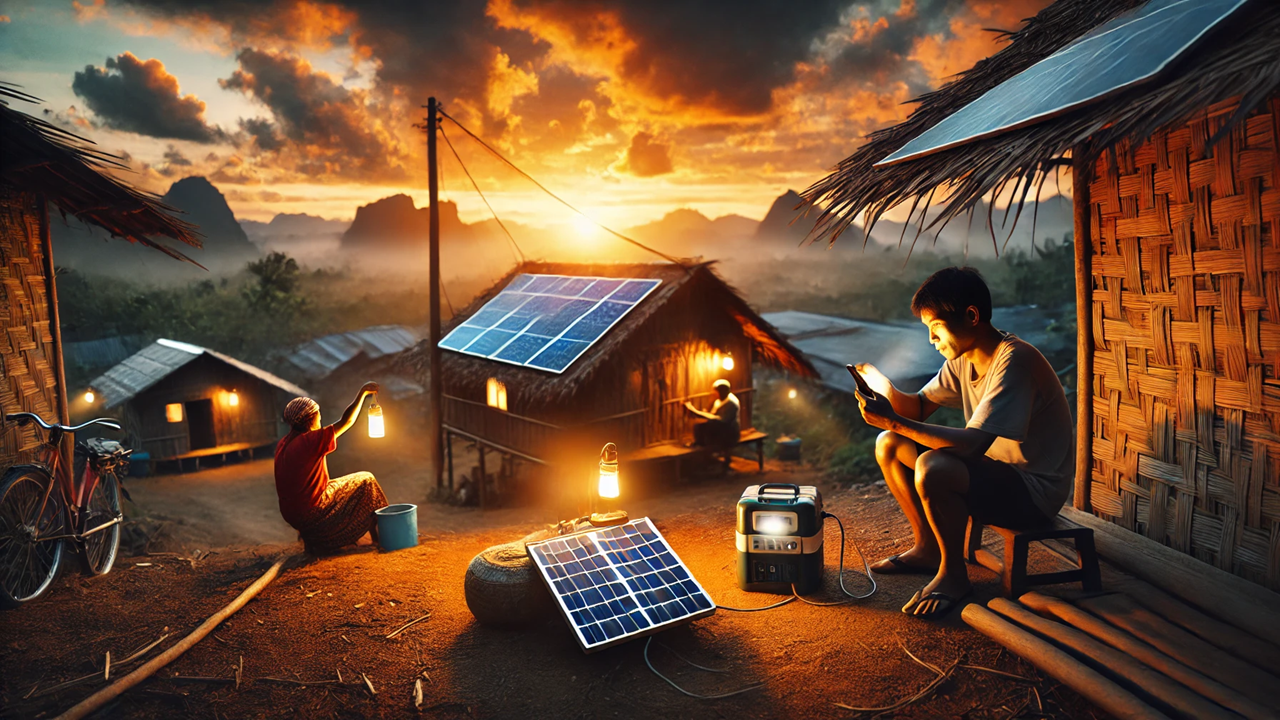Bridging the Energy Access Gap: How Responsible Subsidies Power Off-Grid Solar and Clean Cooking
The World Bank's report, "Designing Responsible End-User Subsidies for Energy Access", explores how well-designed end-user subsidies can bridge the affordability gap in off-grid solar and clean cooking technologies, providing energy access to the world's poorest populations. Through case studies from countries like Rwanda and Nigeria, the report demonstrates that when subsidies are carefully targeted and responsibly designed, they can significantly improve energy access while minimizing market distortions.

Tackling the Energy Access Crisis with Thoughtful Subsidies
Around the world, access to reliable energy is a lifeline for growth, innovation, and improving the quality of life. Yet, millions of people, particularly in Sub-Saharan Africa, remain without basic energy services. A recent World Bank report titled "Designing Responsible End-User Subsidies for Energy Access: A Toolkit Featuring Case Studies for the Design of Subsidies in Off-Grid Solar and Clean Cooking" explores how well-designed subsidies can close the gap between affordability and access, a challenge faced by the world's poorest populations.
In countries where energy grids fail to reach rural and isolated communities, decentralized solutions like off-grid solar (OGS) and clean cooking technologies have become essential. But while these solutions are critical, they remain financially out of reach for many households. The World Bank report emphasizes that end-user subsidies (EUS) can make a significant impact by directly reducing the cost of these energy products and services, thus enabling access to affordable and clean energy.
Understanding the Challenges
The global energy access challenge can be broken down into two primary barriers: the "availability gap" and the "affordability gap." The availability gap refers to situations where off-grid solar systems and clean cooking products simply aren't accessible in remote or marginalized areas. Even when products are available, the affordability gap makes it impossible for families to purchase them. For instance, it's estimated that by 2030, 660 million people will still be without electricity, and 1.8 billion will lack access to clean cooking solutions, largely due to these affordability challenges.
EUS programs directly address the affordability gap by lowering the prices of energy solutions. A powerful example is Rwanda’s Renewable Energy Fund (REF), which targeted over 330,000 households that otherwise would not have been able to afford solar home systems (SHS). Similarly, in Nigeria, subsidies helped one million households gain access to SHS within just one year.
Responsible Subsidy Design
The World Bank's toolkit lays out a step-by-step guide to designing responsible EUS programs. These subsidies are intended to lower the cost of energy solutions without causing long-term market distortions. Careful design is key. If subsidies are not designed responsibly, they can distort markets by artificially altering prices, reducing the perceived value of energy products, or even making companies overly reliant on government funding.
The toolkit proposes a framework to help stakeholders design EUS programs tailored to different market contexts. Key elements include,
Pre-Design Market Assessments: These evaluations help determine program goals, funding, and the maturity of the energy market. By understanding the local context, stakeholders can avoid a one-size-fits-all approach.
Targeting Approaches: Whether geographic, demographic, or economic, targeting ensures that subsidies reach the households most in need. For instance, Rwanda’s use of the “Ubudehe” categorization system helped direct subsidies toward the poorest households.
Subsidy Levels: Getting the right balance is crucial—too much subsidy can distort the market, while too little may not make a difference. The toolkit highlights the need for flexible models that adapt to varying levels of consumer affordability.
Delivery and Verification Mechanisms: Transparency and accountability are emphasized, with private-sector collaboration playing a key role in effective subsidy delivery. Verification ensures that the right products reach the intended beneficiaries, minimizing fraud and ensuring that funds are well-spent.
Case Studies: Lessons from Rwanda, Nigeria, and Beyond
Several case studies in the report demonstrate how targeted subsidies have been successfully deployed. In Rwanda, targeted subsidies under REF helped households that previously couldn’t afford SHS to gain access to affordable, reliable energy. In Nigeria, an output-based fund for SHS dramatically expanded energy access in just one year, reaching over a million households.
These examples illustrate that when carefully planned, end-user subsidies can have a transformative impact, significantly narrowing the energy access gap while supporting sustainable development goals. The key to success is not just in providing subsidies but in ensuring that they are designed to suit local market conditions, minimize market distortions, and ultimately empower communities to thrive with reliable, clean energy.
The Road Ahead
The World Bank’s report makes it clear that we must accelerate efforts to provide affordable energy solutions if we are to meet the 2030 Sustainable Development Goals. With over $60 billion needed to address the energy access gaps for OGS and clean cooking solutions, much of which is concentrated in emerging markets, the role of EUS becomes even more critical.
Subsidies are an effective tool for closing the energy affordability gap, but their success depends on responsible and context-sensitive design. The lessons from countries like Rwanda and Nigeria serve as blueprints for other nations grappling with energy poverty. As we move forward, the collaboration of governments, private sector stakeholders, and development partners will be essential in scaling these programs to ensure that no one is left behind in the push for universal energy access.
- FIRST PUBLISHED IN:
- Devdiscourse
ALSO READ
UK Unveils New Development Initiatives to Drive Sustainable Development in Malawi and Zambia
EU Deepens Partnership with Zanzibar for Sustainable Development and Gender Equality
South Africa’s G20 Presidency Prioritizes Sustainable Development, Climate Action, and Debt Solutions
UNDP and Qatar Partner to Harness Digital Innovation for Sustainable Development
ADFD and Bahrain: A Model Partnership for Sustainable Development










